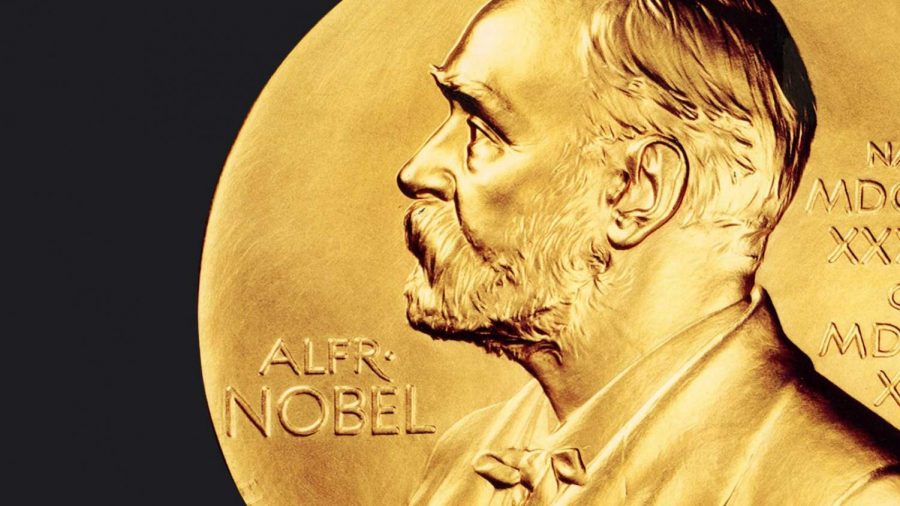Nobel Prize Recap
Every year, the Nobel Prizes are awarded to those who have made a significant, lasting contribution to the fields of physics, chemistry, medicine, literature, and peace. This year is no different, and every one of the laureates has made a substantial impact on their fields. There are 13 laureates this year with origins in Japan, Germany, Italy, the UK, and other countries.
To the average person, some of the Nobel discoveries or achievements can fly well over their understanding. As such, the list compiled here not only lists the exact work the laureates were nominated for but also explains their contributions in easy-to-understand terms.
Physics: Syukuro Manabe, Klaus Hasselmann, & Giorgio Parisi
This year, the Nobel Prize in Physics was awarded to three people. The first two, Syukuro Manabe and Klaus Hasselmann, were Japanese and German scientists working at Princeton University “for the physical modeling of Earth’s climate, quantifying variability and reliably predicting global warming.” Their work lays the foundation for human knowledge of climate change, and more importantly, how humanity can influence it. They received half of the prize, splitting it evenly between them.
The other half was awarded to Giorgio Parisi, an Italian physicist working at the Sapienza University of Rome, “for the discovery of the interplay of disorder and fluctuations in physical systems from atomic to planetary scales.” His work provided revolutionary insights into the theory of disordered materials and random processes. Unfortunately, there is no way to explain this simply without getting a master’s degree in physics. Instead, it is important to know that his contributions will act as the groundwork for exciting new discoveries in the future.
Chemistry: Benjamin List & David W.C. MacMillian
The 2021 Nobel Prize in Chemistry was awarded to Benjamin List, a scientist at Max-Planck-Institut für Kohlenforschung, and David W.C. MacMillian, a Scottish chemist working at Princeton, “for the development of asymmetric organocatalysis.” While it sounds complicated, their research essentially discovered a new, easier way of rearranging molecules to make new compounds. Their organic catalysts help drive chemical reactions and ensure that the correct compound is formed in the end. This has not only helped the pharmaceutical industry but also serves to make all of chemistry a little bit greener.
Medicine: David Julius & Ardem Patapoutian
The Nobel Prize in Medicine this year was awarded to David Julius, an American scientist at UC San Francisco, and Ardem Patapoutian, a Lebanese researcher at Howard Hughes Medical Institute, “for their discoveries of receptors for temperature and touch.” Both of their works taken together reveal how nerve impulses are initiated to react to temperature and pressure. Julius identified a sensor in the nerve endings of skin that reacts to heat while Patapoutian discovered a whole new class of sensors that respond to mechanical stimuli. Their insights help to clear up how the nervous system identifies heat, cold, and pressure. They also aid in filling in missing information in the understanding of our senses, therefore paving the way for new research in the future.
Literature: Abdulrazak Gurnah
The Nobel Prize in Literature was awarded to Abdulrazak Gurnah “for his uncompromising and compassionate penetration of the effects of colonialism and the fate of the refugee in the gulf between cultures and continents.” Born on the Zanzibar in the Indian Ocean in 1948, he became a refugee in England during the 1960s, a period of great international mistrust and rising tensions. He has published 10 novels and numerous short stories, many of which focus on the idea of the refugee’s disruption. His work exposed the impact of colonialism and the role of the refugee in cross-cultural transfers in a post-world-war era.
Peace: Maria Ressa & Dmitry Andreyevich Muratov
The Nobel Peace Prize 2021 was awarded jointly to Maria Ressa and Dmitry Andreyevich Muratov “for their efforts to safeguard freedom of expression, which is a precondition for democracy and lasting peace.” Ressa is a journalist and head of an investigative journalism company in her home country of the Philippines. She has, despite the possible consequences, fought to expose abuse of power, use of violence, and growing authoritarianism since she started in 2012.
Muratov helped start an independent newspaper, Novaja Gazeta, in 1993 and has been editor-in-chief since 1995. For 25 years, he has run the newspaper relying on facts-based journalism and professional integrity, making it into one of the most reliable sources on usually censored information. Novaja Gazeta has published critical articles on corruption, police violence, unlawful arrests, electoral fraud, and the use of Russian military forces, within and outside of Russia. Despite the threats and deaths of six of his journalists, Muratov refuses to abandon their independent policy. His work to protect the freedom of expression in his country lays the groundwork for truth, equality, and peace.
This year’s laureates have all made an impact on their part of society and inspired others to make changes of their own. Whether it be making chemistry more ecologically friendly or inspiring journalists worldwide to share the truth, they all have added a significant contribution to the world. They have made the world a much better place, on the surface and in the eyes of the public. Because of this, these ten individuals are the Nobel laureates for 2021.

